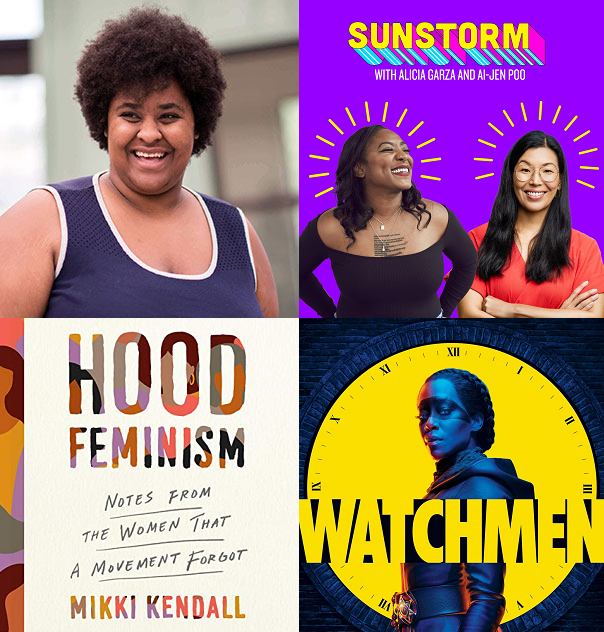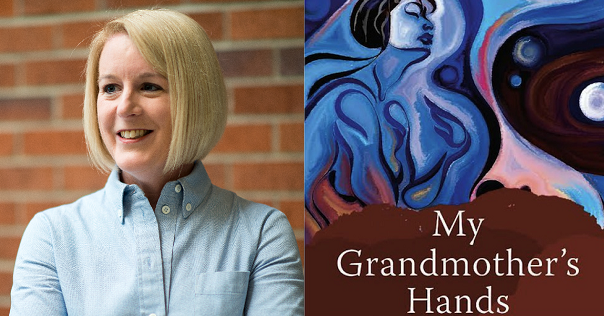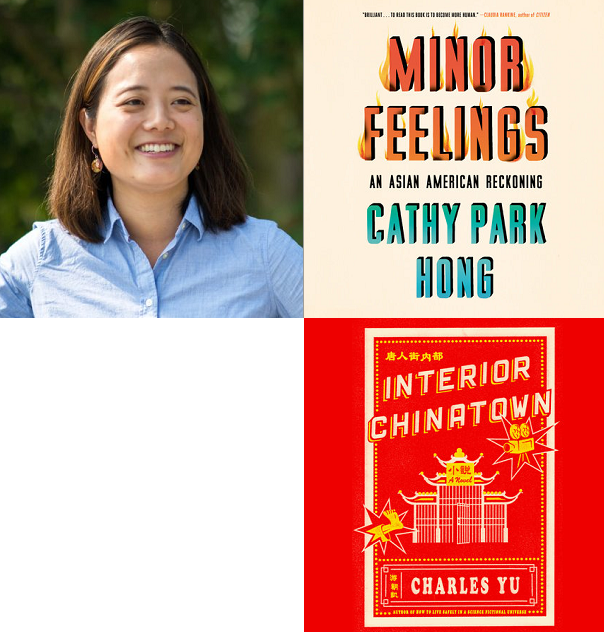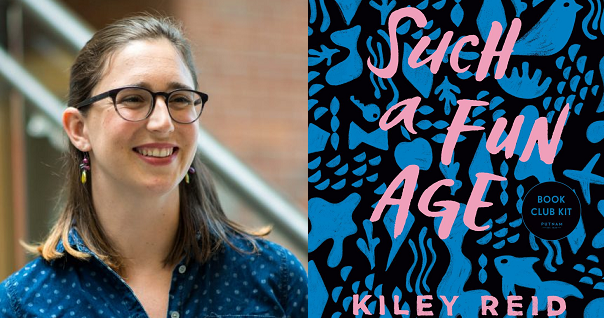At WA Women’s Foundation, we are dedicated to becoming more a informed collective and approaching our work with a learning mindset. We do this through our over 40+ programs and events we host throughout the year, our grantmaking cycles, and our various member-driven committees. While we’re proud of the breadth of our educational opportunities, we also value the time and space for personal reflection on our learning.
When we think about serving the our communities as a staff, we ask ourselves whose voices, opinions, and feelings are we centering and valuing (or ignoring). In doing so, we are not only acknowledging the importance of different perspectives in the work of building a more equitable society, but also that these perspectives and individual stories have power (author Chimamanda Ngozi Adichie discusses this in her TED Talk, “The danger of a single story”). Whether it is through who we invite to speak at our programs and events, who we consult, or who we ask for feedback, we aim to share our power and platform as a funder by listening to and amplifying those whose knowledge, lived experiences, and roots in community inform the work that can lead to community transformation.
Especially during the concurrent public health pandemics of COVID-19 and systemic racism, we believe one easy way everyone can engage in equity work is by being intentional of the culture you consume. What books, podcasts, films/television series, or social media accounts are you following and whose voices and experiences do they center? What are some perspectives that you’re missing? With this in mind, our staff shares a few resources that have helped broaden their perspective recently.

Morgan Dawson, Strategic Partnerships & Programs Manager
Podcasts: Sunstorm, Work in Progress, Words to Win By, Longform
Books: Factfulness, Hood Feminisim
Watchmen, The Last Dance, Hamilton: An American Musical
2020 has been hard to say the least. I have been very conscious about what I am listening to and amplify, especially at the beginning of the uprisings when everyone was making reading lists about race with materials written by white women. I think it’s important to center Black womxn doing this work. I know it’s a lot to think about when picking a book or a podcast, but we need to be intentional about whose perspective we are listening to.
Podcasts
- I love listening to other people talk. My pure joy/love podcast is Sunstorm, which is hosted by Alicia Garza and Ai-jen Poo, two astounding activists. This podcast has so many roadmaps and so much wisdom that after every episode, I feel like I should be paying the hosts thousands of dollars for their time and insight.
- I got pretty overwhelmed with the idea of this movement not being simply a moment. Then I listened to Dr. Melina Abdullah on the Work in Progress podcast with Sophia Bush. This definitely got me through June. Seeing movements built and sustained has been done and can be done. We’ve waited a long time for this moment.
- Beth and I went to an event by Progress Alliance last fall and heard the amazing Anat Shenker-Osorio speak about the power of marketing and words in movements and how freedom wins. I’ve been slowly savoring her podcast Words to Win By. This week, I listened to the episode “People Seeking Asylum – Australia.” As we talk about defunding police and how black lives should do more than matter – they should thrive, make mistakes and be seen – this podcast is a breath of fresh air. As well as directly discussing immigrant and migrant rights, they discuss how horrible it is for others to have to defend their humanity.
- Lastly, Ashley C. Ford is one of my favorite writers. She is the first person I saw who also had a dad go to jail at a young age and then come out 20 years later. When I heard her on a podcast a few years ago, I got obsessed. One of the best things I’ve listened to last year and have revisited anytime I need some joy is her on Episode #378 of the Longform podcast. Listening to her talk about finding love as a Black woman and about her writing makes me feel seen.
Books
- I had been trying to finish Factfulness for a while now. It became surprisingly relevant in March; it was a really helpful for perspective.
- I also read Hood Feminism for our Let’s Talk Intersectional Feminism program. I think it is such a beautiful roadmap and a brilliant book.
TV Shows/Documentaries/Films
- Watchmen is jam-packed with history and beauty and love. This show upends all conventional troupes, and looks at things like who should be centered and what if reparations had happened. Also there is a black woman superhero – yes, please!
- I recently started The Last Dance, a basketball documentary. I am not the biggest basketball fan but this documentary is packed with secrets and interesting takes about Michael Jordan & Scottie Pippin.
- Hamilton: An American Musical has a whole new meaning during the uprisings. It doesn’t matter if you love musicals or not, or if you think the show is overrated. The actors in this production reflect those on the frontlines. It makes you wonder about our history and who will tell the story of this year.
Working from home has been extremely tough. Having white supremacy in my home has made me wonder how do I keep this place safe for me. I have found a lot of solace & some joy in the listening to Black women who have been doing this work for years.

Beth McCaw, President & CEO
My Grandmother’s Hands: Racialized Trauma and the Pathway to Mending Our Hearts and Bodies, Resmaa Menakem
“For the past three decades, we’ve earnestly tried to address white-body supremacy in America with reason, principles, and ideas – using dialogue, forums, discussions, education, and mental training. But the widespread destruction of Black bodies continues. And some of the ugliest destruction originates with our policy. Why is there such a chasm between our well-intentioned attempts to heal and the ever-growing numbers of dark-skinned bodies who are killed or injured, sometimes by police officers?
It’s not that we’ve been lazy or sincere. But we’ve focused our efforts in the wrong direction. We’ve tried to teach our brains to think better about race. But white-bodied supremacy doesn’t live in our thinking brains. It lives and breathes in our bodies.”
Written in 2017 by Minneapolis-based therapist Resmaa Menakem, My Grandmother’s Hands examines the trauma and fear that white supremacy in America inflicts upon both white and Black Americans and how that trauma is carried in our bodies as well as our minds. The title of the book comes from Resmaa’s memory and later recognition of the racialized trauma embedded in his grandmother’s hands. “She wasn’t a large woman but her hands were surprisingly stout, with broad fingers and thick pads below each thumb.” As she explained “That’s from picking cotton. They been that way since before I was your age. I started working in the fields sharecroppin’ when I was four… The cotton plant has pointed burrs in it. When you reach in, the burr rips it up. When I first started picking, my hands were torn and bloody. When I got older, they got thicker and thicker, until I could reach in and pull out the cotton without them bleeding.”
Each chapter of social commentary is followed by a series of guided somatic exercises, intended to connect the body, heart, and mind as a means of healing the wounds of racialized trauma. This book was recommended by a leader of all-white anti-racist learning cohort, and honestly, I was skeptical at first. I have never approached anti-racist work from such a perspective, and while I’m not that great at doing the exercises, I find myself returning to chapters of the book over and over.

Aki Shibuya, Operations & Membership Manager
Minor Feelings: An Asian American Reckoning, Cathy Park Hong
Interior Chinatown: A Novel, Charles Yu
Sometimes, there are books that leave a deep and lasting impression with you after the first few pages. Recently, Minor Feelings: An Asian American Reckoning by Cathy Park Hong did just that. Through a series of essays that blend memoir, cultural criticism, and history, Hong examines examples and instances of these “minor feelings”: “the radicalized range of emotions that are negative, dysphoric, and therefore intelegenic, built from the sediments of everyday racial experience and the irritant of having one’s perception be constantly questioned or dismissed.” She uses her experience as an Asian American woman and her observations of those around her to describe the dissonance and tensions of ideas and expectations that are both placed upon and internalized by Asian Americans. At times while reading, I had to stop and reread certain passage or express my feelings out loud because she articulated truths I have felt but didn’t know how to express. Even if you do not identify as Asian American, I highly recommend that everyone reads this book.
If you’re interested in reading more about the Asian American experience and Asian American identity but fiction is more of your genre, I recommend Interior Chinatown: A Novel by Charles Yu. Written as part-Hollywood script and part-behind the scenes commentary, the book explores Asian stereotypes, immigration and assimilation, representation in pop culture, and racism towards Asians throughout American history through the eyes of the book’s protagonist Willis Wu (who doesn’t see himself as the protagonist of even his own story – but you’ll need to read the book to find out why!).

Aviva Stampfer, Grants Program Manager
Such a Fun Age, Kiley Reid
Recently I read Such a Fun Age by Kiley Reid. I’m a big fan of fiction, and have been making it a priority to read more novels by Black women. The plot follows the aftermath of what happens when Emira, a young Black babysitter, is accused of kidnapping the young white child in her care by a security guard in a grocery store. The relationship between Emira and her boss Alix explores the complex dynamics at play and the subtle ways racism can show up, even when acting with good intentions. I recommend this book to anyone curious about how white privilege can impact relationships, especially when it’s less obvious. It’s also a really fun read!
If you are looking for more recommendations, the WA Women’s Foundation staff shared what they were reading and listening to in August 2019, and how these books, articles, and podcasts have aided our work to increase equity and reduce disparities in Washington State.
Thank you for your insightful thoughts and words. We are blessed at WaWF to have such a thoughtful group of women as our Staff supporting our work in the community/world. Kudos to each of you for sharing your intimate thoughts.
Colleen